Iraqi Prime Minister Maliki in an interview with Der Spiegel: 'I Am Not Familiar With Fear'
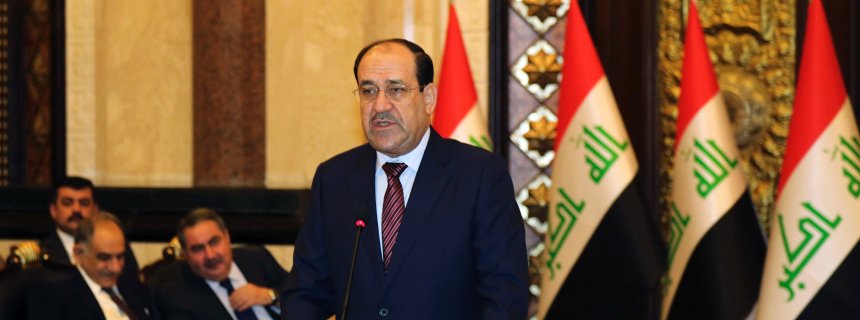
Dieter Bednarz and Klaus Brinkbäumer, SPIEGEL ONLINEINTERNATIONAL
Iraqi Prime Minister Nouri al-Maliki: "Saddam was a tyrant and a dictator. He used poison gas against large parts of his population. I cannot and do not wish to be compared with that."
In a SPIEGEL interview, Iraqi Prime Minister Nouri al-Maliki discusses accusations he has become another Saddam Hussein, the return of terrorism to his country and his fear that the civil war in Syria will destabilize the entire region.
SPIEGEL: Prime Minister Maliki, you have governed Iraq for almost eight years. How many attacks have you survived?
ANZEIGE
Maliki: I can't even say how often my enemies have been after my blood. I've been attacked at close range during public appearances, but there have also been attempts to poison me. My plane was supposed to be shot down once, when I was on my way to Mosul in northern Iraq. Although the plane's defense system deflected the missile, the aircraft was severely shaken. I was even targeted during my visit to Berlin in 2008, but the German security services managed to thwart the plans by a group of young Moroccans.
SPIEGEL: Who has been behind the attacks?
Maliki: I have enemies everywhere. Some are from the Baath Party…
SPIEGEL: … the now-banned unity party of former despot Saddam Hussein …
Maliki: … while others are religious extremists. Some of the fanatics are members of the Sunni faith, while others are Shiites like me. Al-Qaida has also been responsible for some of the attacks.
SPIEGEL: You could draw a personal consequence from the constant threat by deciding not to run for re-election in late April.
Maliki: The threat is part of holding this office. But a politician can't run away just because his life is in danger, especially in a country that needs to be rebuilt and for which stability is so important.
Photo Gallery
11 PhotosPhoto Gallery: The Return of Violence in Iraq
SPIEGEL: Just because? Are you joking or being coy?
Maliki: In my entire life, I have never been afraid of something like death, nor have I ever been afraid of an enemy. I am not familiar with fear. In the days of Saddam Hussein, members of the opposition were constantly being executed. It was a danger we had to live with.
SPIEGEL: You are a deeply religious person.
Maliki: Yes, I find comfort in faith. Take, for example, the fate of the rightly guided Caliph Ali. He won many battles and no one could defeat him. But as fate willed, he was attacked during prayers and died of his injuries.
SPIEGEL: We don't quite believe this entirely self-sacrificing position on your part. Aren't you at least a little interested in your own power?
Maliki: Since I was 17, my entire life has consisted of nothing but struggling and fighting: with the Baath Party under Saddam, then in exile and today with Al-Qaida. Now I am 64 years old and wouldn't mind taking a break. Eight tough years as prime minister are actually enough for me. But I can't rest, given the challenges the country and Iraqis face.
SPIEGEL: So you will run for the office of prime minister once again in the parliamentary election in late April?
Maliki: At least I will lead our State of Law Coalition into the election. Both the votes and the majorities in the parliament will determine whether we will see each other again here in the prime minister's office after the election.
SPIEGEL: Many Iraqis are alarmed by your sense of power.
Maliki: I am responsible for this country being properly governed. That's my democratic mandate. And there are forces that want to bring down our government with alliances they are forming against us. I could use force against them, but I don't do it. I don't manipulate democratic institutions, nor do I exert pressure on them. I abide by the political rules of the game.
SPIEGEL: How is it, then, that you are now being compared with Saddam, and that your former ally, Shiite cleric Muqtada al-Sadr, openly calls you a "tyrant?"
Maliki: The fact that my opponents are allowed to make such accusations, in public speeches and in media reports, proves that any comparison with Saddam is invalid.
SPIEGEL: That's supposed to convince us?
Maliki: Saddam was a tyrant and a dictator. He used poison gas against large parts of his population, against the Kurds and the Shiites. I cannot and do not wish to be compared with that. The background behind these accusations you mention is my decisive action against the Sadr militias, and against all those who are disfiguring Iraq with violence and terror. And then there are still groups that do not forgive me, as prime minister, for having ordered the death sentence carried out against Saddam. Some hold this against me as an unforgivable crime.
SPIEGEL: Was Saddam's execution in late December 2006 a mistake, because it contributed to dividing the nation? Do you regret your decision?
Maliki: On the contrary! First, I only enforced a court ruling. Second, I perceived death for that criminal as nothing short of a judgment by God. And third, the way we handled the situation was important for Iraq, because we didn't simply go into Saddam's cell and shoot him to death, the way he shot his enemies. We gave him a long trial and left the decision up to the court. The fact that Saddam's life was extinguished was the least he deserved.
SPIEGEL: Nevertheless, you have the reputation for not being very squeamish, and you have built a massive power apparatus, including many intelligence services. There is talk that Iraq is becoming a republic of fear once again.
Maliki: It's true that we need a strong government, including strong intelligence services, given the current challenges from terrorism. Otherwise, how can we oppose groups like Al-Qaida, the "Islamic State in Iraq and Syria," or ISIS, and all of these gangs? It's no different here than it is in the West. We have to strengthen our security forces if we hope to successfully fight terrorism.
SPIEGEL: In Anbar Province, in particular, the unrest stems from the fact that many Sunnis feel marginalized by the Shiite-dominated government.
Maliki: Because of earlier political decisions, there were in fact a few misunderstandings between Sunnis and Shiites. But there were no religious reasons for these differences of opinion. They were purely for political reasons.
SPIEGEL: We are talking about the fact that many Sunnis do not feel recognized as citizens, to quote your Sunni deputy prime minister, Saleh al-Mutlaq. And former Prime Minister Ayad Allawi, a Shiite like you, says that the Sunnis are being marginalized.
Maliki: We are dealing with a perfectly normal political process here. Each party has received the share it earned based on its election performance. This also applies to Mutlaq and Allawi. I don't accept the notion that someone should get more than that person is entitled to.
SPIEGEL: How about a little self-criticism? Haven't you, as a Shiite, made far too few compromises with the Sunnis?
Maliki: By God, I swear to you that no one was neglected. I believe in our institutions, in the parliament, the government and the judiciary. However, I don't believe that certain individuals should only exert influence on politics because they happen to lead a large movement. Some people would like to have 10 prime ministers, but there is only one.
SPIEGEL: It wasn't without reason that US President Barack Obama urged you to promote reconciliation between Sunnis and Shiites during your visit to Washington in November.
Maliki: I already advocated national reconciliation before Obama even became president. It's precisely because of that reconciliation that we regained control over the security situation in 2006.
SPIEGEL: The US Army drove the terrorists out of the provinces, but the price for that was a high death toll. Did so many people die for no reason at all?
Maliki: As long as people cooperate with Al-Qaida in cities like Fallujah, they run the risk of becoming victims. The city is now divided into two camps, with some taking the side of the terrorists while others are fighting them alongside our government troops. Since Al-Qaida and ISIS declared the city as part of an Islamic state, we have tried to eradicate that cancer, while minimizing casualties. But as the government, we cannot accept the idea that an Islamic state was declared there.
SPIEGEL: But what went wrong that would enable terrorism to enjoy such a comeback?
Maliki: There are two main axes here in the Middle East: Sunni and Shiite. A few Persian Gulf countries and Turkey are behind the first one, while the second one is the Iranian-Arab axis, which extends across Iraq and Syria and into Lebanon. Four or five years ago, we told the United States that Turkey and a few Gulf countries were trying to destroy the Shiite axis.
Part 2: 'A Military Solution Will Not Topple Assad'
SPIEGEL: How did Washington react?
Maliki: Vice President Joe Biden said that the United States had tried to stop these processes, but without success. And now we can see the outcome in Syria …
SPIEGEL: … where extremists, some funded by Saudi Arabia, are fighting dictator Bashar Assad, an Alawi who is aligned with the Shiites …
Maliki: … and the violence returned to Iraq from terror-infested Syria. But it has also swept over into Lebanon and Jordan.
SPIEGEL: And these groups, allegedly controlled by Saudi Arabia and Qatar, are now deciding Assad's fate?
Maliki: No, they can't do that. That's where they have failed. But we told that to the Americans from the beginning, when officials in Washington were saying that Assad would be toppled within two months. Now three years have passed and the Assad regime still exists.
SPIEGEL: How much longer do you give him?
Maliki: All I know is that a military solution will not topple Assad. It isn't that I intend to defend the Syrian system, but I spent 16 living in exile in Syria, and I'm familiar with the conditions there. I warned against this snowball of violence.
SPIEGEL: It's an astonishing metaphor, here in Baghdad, but how is it possible to prevent it from becoming an avalanche?
Maliki: We have to make it clear that the military solution is not an option. And then the solution must be left up to the two sides in Syria. They will have to find a way without outside intervention.
SPIEGEL: Sorry, but that's naïve. Since the negotiations in Geneva, we have known that both sides are not interested in a peaceful solution.
Maliki: The fact that we can't find a solution is the product of backroom meddling. This exertion of influence must stop. If the United States and the Saudis would stop telling the parties involved what they should say or demand, they would actually have to sit down together. And perhaps they would also find a solution.
SPIEGEL: Otherwise the country will break up?
Maliki: At least the war will continue. It currently benefits the regime, which has gained territory. And this war will infect the entire region. The attacks and the fanaticism in Lebanon are the first effects, but the tension in Turkey is also a consequence of the Syrian drama. The regime in Jordan is already faltering, and the crisis will also spread into Saudi Arabia.
SPIEGEL: Do you think the Saudi royal family is at risk?
Maliki: Yes, the royal family is in danger. It has no sensitivity to the social problems of our age. It stands for an old form of rule based on a sectarian persuasion …
SPIEGEL: … the extremely conservative Wahhabism. And that's why the United States, after former Egyptian President Hosni Mubarak, will soon lose its next alliance partner in the region -- and the world economy will have to worry about its oil supply.
Maliki: Why are you worried about your oil? After all, Saudi Arabia still has to sell its oil.
SPIEGEL: A change in power would trigger unrest in Saudi Arabia, much as Saddam's overthrow in 2003 did in Iraq. The violence has dealt a serious setback to your country's oil production.
Maliki: But now we're ready. We can jump in if Saudi Arabia's production declines.
SPIEGEL: We don't have that impression. Your country probably has the world's fifth-largest oil reserves, but you are far from capable of offsetting a loss of Saudi Arabian oil. Iraq would have to become more stable first.
Maliki: I don't deny that there are certain problems. But we are one of the 10 countries with the greatest surge of development. And in the next two or three years, we will make yet another leap forward in terms of oil production and export. So please don't feel as if you are a hostage of Saudi Arabia.
SPIEGEL: You seem to forget that you cannot dispose of your country's oil reserves quite that easily. The Kurds are claiming mineral resources in the north. An armed conflict over the oil fields of Kirkuk and a breakup of the country are not out of the question.
Maliki: The Kurds had the illusion that they could control the oil in the north themselves. They believed that neighboring Turkey would support their plans. But the Turks are not Kurdistan's sponsor. On the contrary, they would devour the Kurds in one bite. That's why the Kurds only have a future as part of Iraq. And only Iraq can safeguard the production and export of that oil. The Kurds are in the process of discussing this outlook among themselves, and are realizing that they have substantial disagreements. But you can rest assured, because our biggest oil reserves are in the south.
SPIEGEL: Part of the country borders Iran, whose influence extends into the government in Baghdad. Your rival Allawi says that Tehran is shaping Iraqi policy in an unprecedented manner.
Maliki: No, a thousand times no! Anyone who says that sort of thing is trying to harm the government's image. No one influences our policy. Look, Iran and the United States are enemies, but Iraq is a friend of both America and Iran, because we are an independent country. We do not allow ourselves to be roped in for the interests of others. Only Iraq's interests are important to us. That's why we have signed a partnership agreement with the United States and Europe, but also with Turkey, Iran and other countries.
SPIEGEL: You have been a guest at the White House, and your fellow Shiites in Iran welcomed you when you were forced to flee from Saddam. Has the time come for reconciliation between Washington and Tehran?
Maliki: Yes, I think so. And I have the impression that both governments are now seeking good relations, which is in their own interest. They have grown tired of the hostilities.
SPIEGEL: Both Washington and Tehran want to profit from your country's development. Is there anything left for Germany, one of the world's top exporting nations?
Maliki: A trusting historic relationship connects our two countries. German products and companies command great respect in Iraq. That's why we would like to award a project like the construction of the Mosul dam to a German company. We are also talking to your railroad experts about expanding our rail network. We will be seeking bids for an airport project, and we also need German companies to develop a domestic auto industry. We welcome everyone in Iraq.
SPIEGEL: A prerequisite for major investment would be the reestablishment of law and order. But you haven't even been able to do that in Baghdad. Terror attacks claimed 239 lives in the capital in February alone. In fact, we almost became the casualties of two car bombs, which exploded at a checkpoint to the heavily guarded International Zone, the seat of your government and international institutions.
Maliki: We have created stability, even though there are still troubled regions like Anbar Province. And the kind of incident you experienced here in Baghdad can happen anywhere. Even in Europe you aren't safe from terrorism.
SPIEGEL: Mr. Prime Minister, we thank you for this interview.
Latest News
-
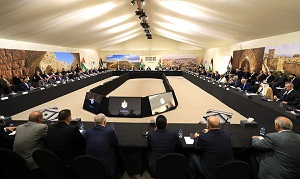 Cabinet approves JD100m package to support public universities
Cabinet approves JD100m package to support public universities
-
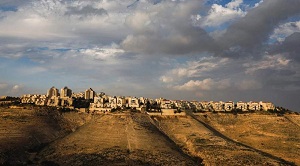 US opposes West Bank annexation after Israel tightens grip
US opposes West Bank annexation after Israel tightens grip
-
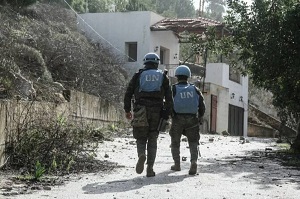 UN force to withdraw most troops from Lebanon by mid 2027
UN force to withdraw most troops from Lebanon by mid 2027
-
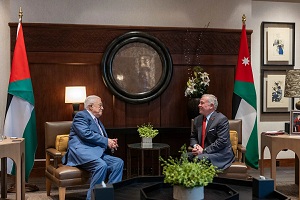 King receives Palestinian president, condemns illegal measures to entrench settlements
King receives Palestinian president, condemns illegal measures to entrench settlements
-
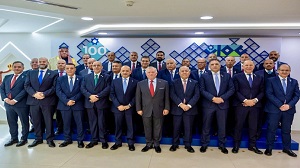 King attends Amman Chamber of Commerce celebration of over 100 years since its founding
King attends Amman Chamber of Commerce celebration of over 100 years since its founding